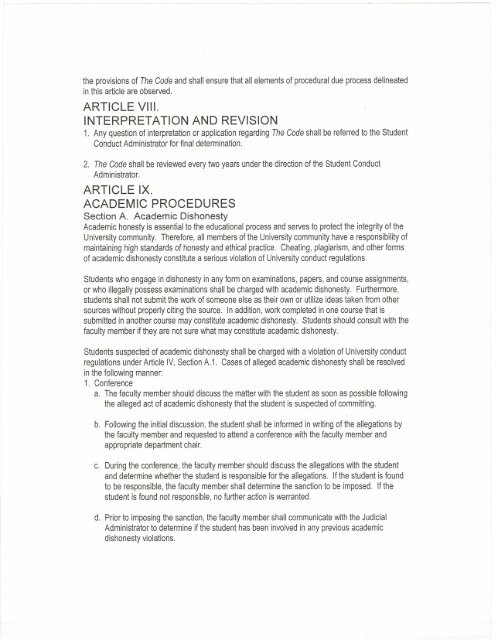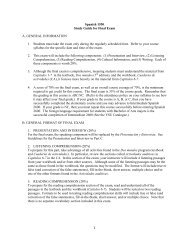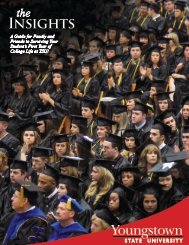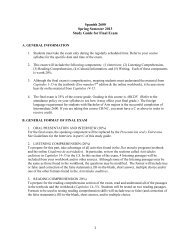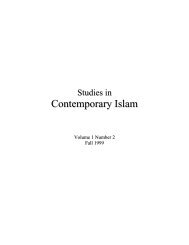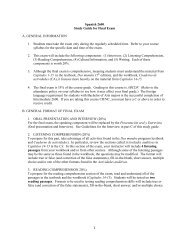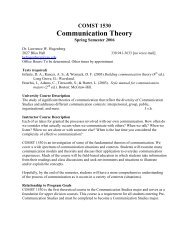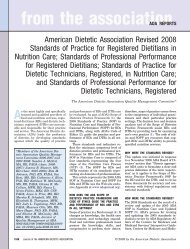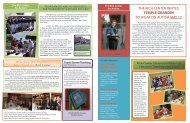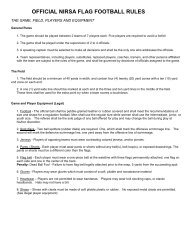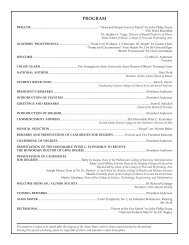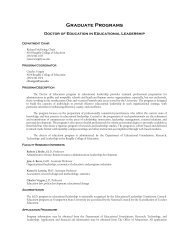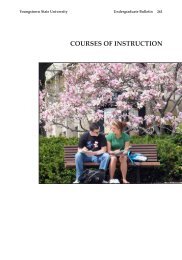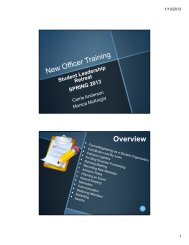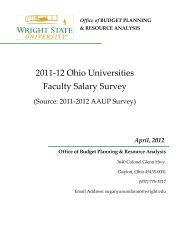September 29, 2006 - YSU - Youngstown State University
September 29, 2006 - YSU - Youngstown State University
September 29, 2006 - YSU - Youngstown State University
You also want an ePaper? Increase the reach of your titles
YUMPU automatically turns print PDFs into web optimized ePapers that Google loves.
the provisions of The Code and shall ensure that all elements of procedural due process delineated<br />
in this article are observed.<br />
ARTICLE VIII.<br />
INTERPRETATION AND REVISION<br />
1. Any question of interpretation or application regarding The Code shall be referred to the Student<br />
Conduct Administrator for final determination.<br />
2. The Code shall be reviewed every two years under the direction of the Student Conduct<br />
Administrator.<br />
ARTICLE IX.<br />
ACADEMIC PROCEDURES<br />
Section A. Academic Dishonesty<br />
Academic honesty is essential to the educational process and serves to protect the integrity of the<br />
<strong>University</strong> community. Therefore, all members of the <strong>University</strong> community have a responsibility of<br />
maintaining high standards of honesty and ethical practice. Cheating, plagiarism, and other forms<br />
of academic dishonesty constitute a serious violation of <strong>University</strong> conduct regulations.<br />
Students who engage in dishonesty in any form on examinations, papers, and course assignments,<br />
or who illegally possess examinations shall be charged with academic dishonesty. Furthermore,<br />
students shall not submit the work of someone else as their own or utilize ideas taken from other<br />
sources without properly citing the source. In addition, work completed in one course that is<br />
submitted in another course may constitute academic dishonesty. Students should consult with the<br />
faculty member if they are not sure what may constitute academic dishonesty.<br />
Students suspected of academic dishonesty shall be charged with a violation of <strong>University</strong> conduct<br />
regulations under Article IV, Section A.1. Cases of alleged academic dishonesty shall be resolved<br />
in the following manner:<br />
1. Conference<br />
a. The faculty member should discuss the matter with the student as soon as possible following<br />
the alleged act of academic dishonesty that the student is suspected of committing.<br />
b. Following the initial discussion, the student shall be informed in writing of the allegations by<br />
the faculty member and requested to attend a conference with the faculty member and<br />
appropriate department chair.<br />
c. During the conference, the faculty member should discuss the allegations with the student<br />
and determine whether the student is responsible for the allegations. If the student is found<br />
to be responsible, the faculty member shall determine the sanction to be imposed. If the<br />
student is found not responsible, no further action is warranted.<br />
d. Prior to imposing the sanction, the faculty member shall communicate with the Judicial<br />
Administrator to determine if the student has been involved in any previous academic<br />
dishonesty violations.


